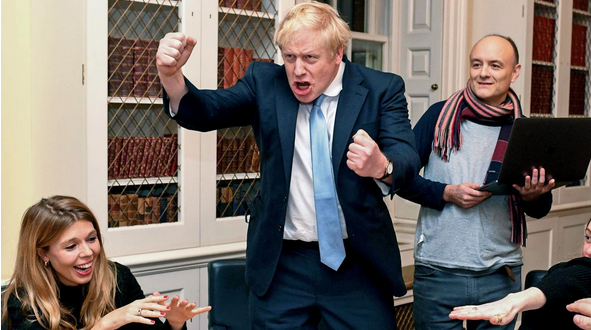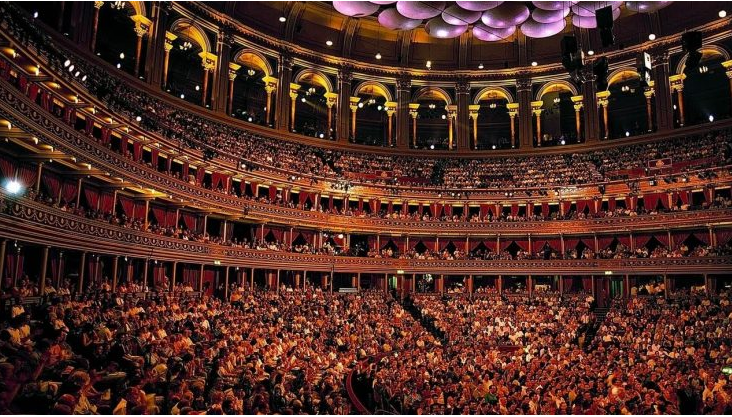Do we have to become responsible for our own Covid safety?
So, the man who (allegedly) said he didn’t mind if the bodies were piled high (headlined below), he didn’t want to impose another lockdown — until he, in fact, did — is now embarking on another experiment in which that may indeed turn out to be outcome. On June 21, all social distancing is to be scrapped in the UK.

In other words, according to this policy, we can infer that Covid is no longer a problem. It will have been officially defeated. Never mind that it is still running rampant in places like India, Brazil and parts of Africa; they’re poor countries, not us. Never mind, either, that our nearest neighbours like France, Italy and Germany have recently re-imposed their own extensive lockdowns. We’ve now left the EU; like the right for Europeans to live and work here (or we in Europe), the virus now knows it is not allowed to cross our borders (and Priti Patel will be there policing them, we can be sure of that).
Besides, the EU’s vaccine roll-out has been a bit shambolic; we’ve done so much better here (with no thanks to Dido Harding and her “world-beating” NHS track and trace app), but at least everyone here who wants one has been offered or will have had access to a vaccine. Once you’ve had it, though, you’re on your own, mate. The government has played its part — the rest is now up to you.

It must be wonderful to be able to play God, when you’re just a mortal; but then, as we’ve long known, Boris Johnson never accepts personal responsibility for anything he does himself, but anything that happens to you IS your own responsibility, unless of course you’re one of his (once) loyal advisers like Dominic Cummings (pictured above right, next to the PM and his fiancee Carrie Symonds), protected despite clearly breaking the lockdown rules when he travelled with his family to Durham (because what family wouldn’t to protect a young child?) or taking a day trip to Barnard Castle (because who wouldn’t want to test their eye sight before a longer drive back to London?); or his home secretary Priti Patel, who despite having been judged to have broken the ministerial code by bullying staff, was cleared of wrongdoing (because who doesn’t occasionally bully and hector staff, after all?)
Of course the news that social distancing will no longer be required is a boon to the hospitality and entertainment industries, who depend on capacities as high as they can possibly fill to turn a(n even bigger) profit. And yes, I do understand that COVID is going to be around now for the foreseeable future, so we might as well learn to live (and some of us die) with it. We each of us, in this modelling, will have to make our own risk assessments of what activities are worth doing again.

I used to think nothing of sitting in a crowded theatre between five and twelve times a week (yes, really). I always knew I went a bit too often, but there was no harm in it; at least I was off the streets and in a (relatively) safe, if not always comfortable, space.
But now I’m being forced to confront the risk that someone sitting right beside me may, unbeknownst to me, be carrying a highly infectious, frequently deadly disease; I’ll never know (unless and until I catch it; which the vaccine doesn’t prevent, but does mitigate the effects of). The disease is airborne, so it’s not enough that I don’t come into physical contact with them. Its enough to be in their vicinity, and now I won’t even be protected by the one-metre rule (that was initially supposed to be two, but was reduced as long as mitigations were followed).
Now, throwing the baby out with the bathwater, even one-metre safety protocols will be gone, though limited mitigations will still be required, like wearing face coverings and staggered entry to the venue.
I have to say I’m really relieved that I’m moving to the countryside later this month, so the opportunity to go to the theatre every night of the week will be significantly reduced, which will act as a self-imposed mitigation factor against exposure to excessive personal risk; just as “regular” theatregoers might go once a week or month, my exponential risk by going six or seven nights a week was much higher.
I’m still planning on an overnight stay back in London one night a week, so I can get my theatre fix of three or four shows a week (and still function as a theatre critic); but I’ll bring my own exposure to risk down by simply going less. Others may choose not to go at all: as someone tweeted back at me the other day, going to the theatre entails “two train rides for me unless we can be taken to the next town half an hour away and then it’s also whether I want to wear a mask for about 2 hours and then have to sit it in again for a further 2 etc when it isn’t necessary like shopping is.”
This is ominous; we need people to go to more theatre, not less, to support the industry after its catastrophic year-plus of closure. Of course it would be safest of all to become a hermit and never leave the house; but why run into the fire, either?

